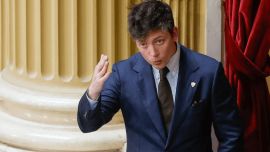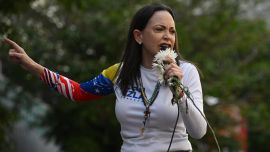The world’s leaders are all facing a situation of historical uncertainty in the battle against the coronavirus pandemic. Beyond any country’s specific circumstances, the economic consequences of trying to contain the spread of Covid-19 has created an additional complication for a global political class that is suffering from a growing sense of distrust by the population, as evidenced by the rise of anti-system parties and presidents.
In Argentina, Alberto Fernández reached the presidency by leading a pan-Peronist coalition that spans the ideological spectrum, with Cristina Fernández de Kirchner as the Frente de Todos coalition’s factotum of power. Marred in chronic economic decadence, the situation is exponentially more difficult given two successive administrations that have ruffled the nation’s disorderly macroeconomic variables. Now, there are mounting questions as to the competence of those responsible for executing public policy, both from within the Frente de Todos and from the opposition, with the latter obviously trying to take advantage of a series of political gaffes. The latest issue has to do with the multiple negotiations regarding different vaccines for Covid-19, creating the sensation that the Cabinet doesn’t seem prepared to deal with the pandemic effectively.
While regional nations like Mexico and Chile have already begun their vaccination programmes, Argentina is only getting initial access to 300,000 doses of Sputnik V, the Russian vaccine that hasn’t been confirmed as effective for patients over 60 years of age, the main risk group. At the same time, the Fernández-Fernández administration hasn’t been able to close a deal with global pharma giant Pfizer for what is seen as the most effective vaccine that is currently being mass produced. Those 300,000 doses are enough for 150,000 people, given the need for a second dose to reach the desired levels of inoculation.
Sooner or later the government will have to close several deals with pharmaceuticals but also directly with governments, including China and India, in order to acquire enough doses to try and inoculate as much of the population as possible. Yet, the delays and errors in communication are continuing to erode the public’s trust in the government, and in the effectiveness of vaccines, which itself is troubling.
It doesn’t seem to help Alberto Fernández much that Fernández de Kirchner, his vice-president, has ramped up her criticism of his (or should that be their?) administration, publicly questioning the Cabinet and asking for change. President Alberto and Cabinet Chief Santiago Cafiero have come out time and time again to tell the public they agree with Cristina’s remarks, while also having to show signs of support for the Cabinet. And yet journalistic versions indicate there is ample talk of a reshuffle. On Thursday, the government quickly identified a scapegoat, Ambassador Luis María Kreckler, stationed in Beijing. The official story indicated he wasn’t in the best of terms with Foreign Minister Felipe Solá — who himself isn’t on the best of terms with CFK — and had taken an “ecological leave” in order to visit the beautiful island province of Hainan, home to sandy beaches preferred by the Chinese elite.
Kreckler, a career diplomat with previous posts in Brazil, Germany and Switzerland, had apparently fumbled negotiations with major Chinese labs including Sinovac and Sinopharm. Health Minister Ginés González García has been directly involved in these negotiations too, but Kreckler's apparent incapacity accelerated his expulsion from the diplomatic corps. Interestingly, the exact same version of the story was published in several of Argentina’s major news sites. Kreckler himself indicated he wasn’t aware of having been dismissed, acknowledged he had taken “ecological leave” but denied having been to Hainan. Whether or not it’s true, it feels as if the government is looking for someone to blame in the face of mounting criticism for its failure to quickly secure doses of the coveted anti-Covid vaccines.
President Fernández has probably been sleeping on who he’s going to fire as the going gets tough, even if his entire Cabinet is said to have his support. But he needs to chop some heads in order to demonstrate action – Cristina is asking for it, and so are a growing number of members of the so-called “círculo rojo,” the group of influential decision-makers that incl;udes businessmen, journalists, and politicians. They fear a cabinet shake-up will lead to a greater presence of hardcore Kirchnerites, meaning a move against the moderation Alberto preached during the campaign. Even worse, these people fear a move toward greater state influence in the economy, a favoured Peronist approach.
Many of these tectonic shifts, which carry with them an underlying anti-capitalist ideology, have already begun to occur. As explained last week, Economy Minster Martín Guzmán’s plan is based on a fairly orthodox view of the working of the country’s economic apparatus, traversed with an understanding that these processes must give time for society to accompany them, rather occurring as shocks that leave countless unemployed and in poverty. Closer to Cristina, a prism of power is used to analyse reality – this means that while Guzmán needs to reduce the fiscal deficit by cutting subsidies (i.e. raising public utility prices), Fernández de Kirchner’s team has effectively put a cap on the price hikes in order to try and win next year’s midterm elections. There are several other examples of this dynamic in play.
Thus, it comes down to politics again. With elections around the corner and a supposedly unified Juntos por el Cambio opposing coalition looking to capitalise on the pandemic and the economic mess they contributed in creating, every decision Alberto makes will be read politically, which in turn could lead to gridlock. With a Cabinet that is already on shaky ground and a dangerous combo of pandemic and stagflation on the horizon, President Fernández will have a tough start to 2021. Unless the vaccines are readily available and effective, and the insipid economic recovery isn’t derailed, it is difficult to imagine what the team of ministers will look like next year. Merry Christmas?























Comments